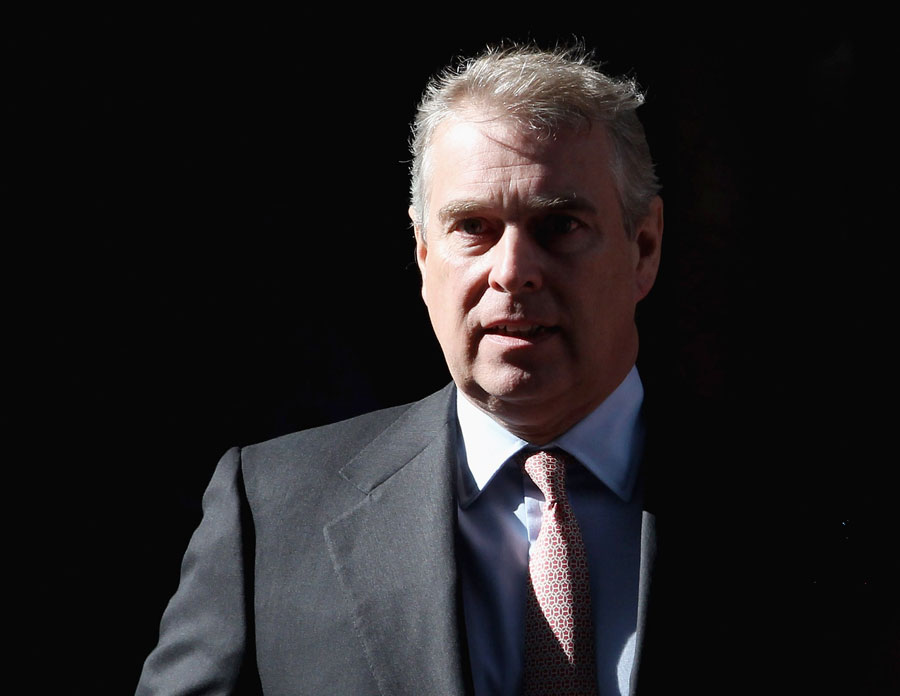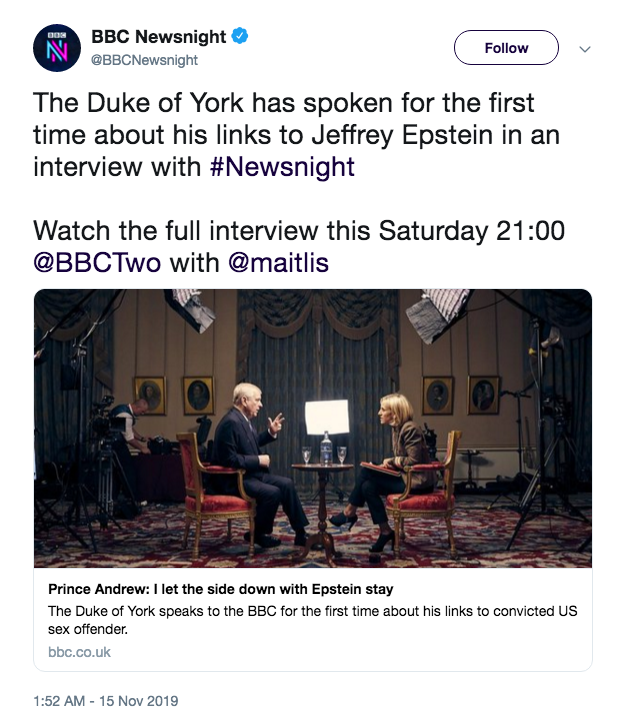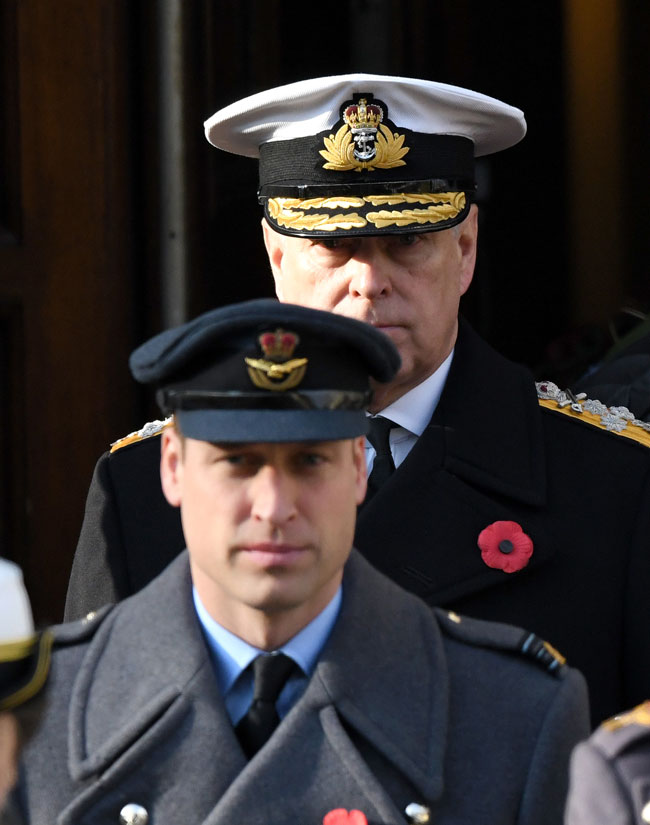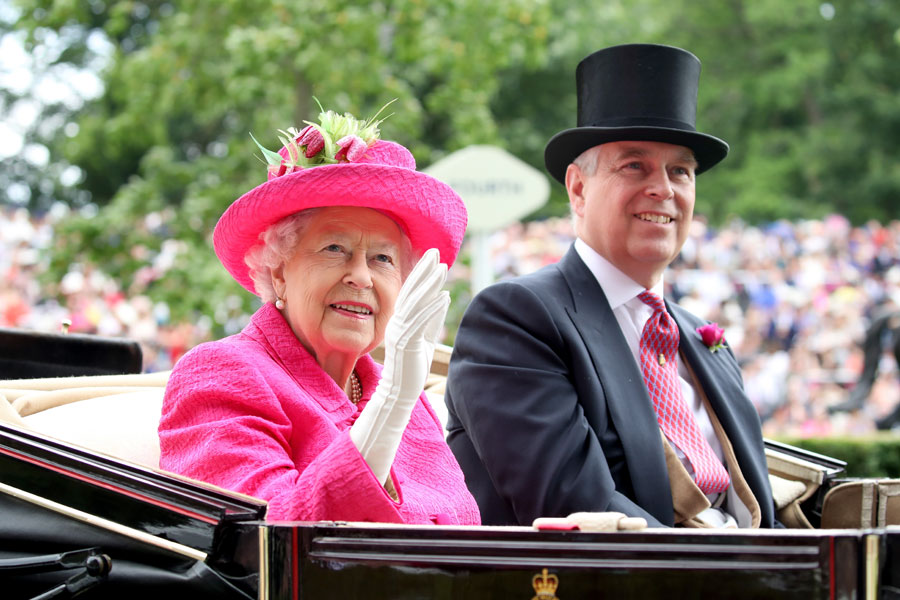Prince Andrew’s Tell-All Interview Fails to Put the Epstein Scandal to Rest

Photo: Dan Kitwood/Getty Images
The titillating, high-stakes BBC interview with Prince Andrew that aired today in Britain may go down in history as a key example of how NOT to handle a public-relations crisis. Interviewer Emily Maitlis was highly praised by public and press; the Duke of York was roundly drubbed for an evasive and, at times nonsensical, performance.
The chief focus was the prince’s association with late American financier Jeffrey Epstein, a convicted sex offender who committed suicide in August while being held without bail in jail on two sex-trafficking charges related to underage girls. Andrew also addressed sexual-assault allegations by an Australian woman, who she says she was a victim of sex trafficking by Epstein and socialite Ghislaine Maxwell starting at age 15. The one-hour talk also covered wide-ranging topics from his family to his sex life.

Andrew expressed regret he had “let the side down” – meaning the Royal family – by visiting Epstein in 2010, after the financier was released from prison following his first conviction, after a plea deal, on lesser charges of prostitution. The Prince said visiting Epstein in New York was “the wrong thing to do,” and then went on to say he did it out of a misplaced sense of honour. Notably, he did not express sympathy for any of Epstein’s young victims in the broadcast.
The Queen’s third child, Andrew, 59, is often seen as arrogant and aloof. In this critical TV appearance – a rare occasion for a senior Royal to publicly answer directly to controversy via the media – he appeared subdued and humble. The interview, which aired on BBC Two network Saturday at 4 p.m. EST, was billed as a Newsnight Special: Prince Andrew & The Epstein Scandal.
Indeed, the only precedents for such a personal Royal interview would be Prince Charles’ admission of adultery in a 1994 television documentary; Princess Diana’s 1995 Panorama interview where she uttered the famous line, “there were three of us in this marriage,” and this year’s southern African Royal tour documentary, where the Duke and Duchess of Sussex admitted to deep unhappiness with Royal life. These types of royal interviews are widely considered ill-advised, and the Prince Andrew broadcast is no exception.
Directly addressing, for the first time, serious allegations made by Virginia Roberts Giuffre that, when she was 17, she was forced to have sex with the Andrew three times in three different countries, the Prince said: “I have no recollection of meeting this lady, none whatsoever.” A statement issued by Buckingham Palace after Epstein died in August said, “His Royal Highness deplores the exploitation of any human being and the suggestion he would condone, participate in or encourage any such behaviour is abhorrent.”
Prince Andrew said he saw “no indication” that Epstein was trafficking young girls. As for Giuffre’s allegation she met the Prince in London in 2001 and went to the private London nightclub Tramp, where Andrew sweated heavily on the dance floor, he said, “it was impossible for me to sweat at the time.” This, he explained, was due to “a peculiar medical condition” described as an “overdose of adrenalin,” which he suffered after he was shot at as a Royal Navy helicopter pilot during the 1982 Falklands War.
After Andrew said, “as a member of the Royal Family I’m not photographed hugging people,” and, “I don’t do public displays of emotion,” social media users flooded channels with shots of the prince in his younger years partying hard in close proximity to various women. The prince was clearly trying to distance himself from the now-infamous photo of himself and Giuffre after they had been to Tramp, where he was pictured with his arm around her waist at Maxwell’s London townhouse. In the Saturday interview, he repeated the suggestion that the photo may have been doctored. And he also he offered an airtight alibi, in the form of a crystal-clear memory of taking daughter Princess Beatrice out for Pizza Express that exact night the photo (of Giufrre, whom he said he does not remember) was taken. Clear as mud.
The Duke of York was safely on home turf for the interview, prerecorded on Thursday in the south drawing room of Buckingham Palace. Amid a grand and formal backdrop, Maitlis conducted the grilling, which she characterized as “no holds barred.” She said the palace did not ask for questions to be submitted in advance, while a Buckingham Palace spokesperson confirmed the Queen was aware of the interview.
They were tough questions, and Andrew had a hard time getting some of the answers out. The transcription of this quote, complete with all the pauses and repeats, was published in The Guardian: “I stayed with him,” he told Maitlis, “and that’s … that’s … that’s the bit that … that … that, as it were, I kick myself for on a daily basis, because it was not something that was becoming of a member of the Royal family, and we try and uphold the highest standards and practices, and I let the side down, simple as that.”
Much was immediately made of the Prince’s hesitant delivery online, as observers pointed out that pausing and stammering can be seen by behavioural scientists as a potential sign of untruthfulness. For the record, the Prince also blinked often and shook his head as he made his admissions of regret. He looked sad and bewildered, mostly.
But back to the contentious 2010 visit and the “too honourable” quote that got the most traction from viewers speaking out online. “It was a convenient place to stay,” he said of Epstein’s mansion, since dubbed by the New York press as a “house of horrors.” He added: “I mean I’ve gone through this in my mind so many times. At the end of the day, with a benefit of all the hindsight that one can have, it was definitely the wrong thing to do.”
And here is that puzzling bit, where he tried to make his actions sound not just reasonable, but honourable. “But at the time I felt it was the honourable and right thing to do, and I admit fully that my judgment was probably coloured by my tendency to be too honourable, but that’s just the way it is.” Truly an artful piece of bafflegab, which the internet took as evidence of his privilege.
Indeed, some of the most cogent analysis in the run-up to the interview came from the prolific Twitter thread of American journalist Catherine Mayer, author of the 2015 political biography Charles: The Heart of a King. She went deep on what she saw as the “culture of impunity” that shaped Andrew.
Of the “letting the side down” comment, she inferred that he “cares about the reputational damage to the monarchy. And to himself.” And she talked about the “symbolic role” of the monarchy as an “idealized family, exemplars to the nation, avatars of probity.”
Having travelled alongside Andrew as the lone press representative on one of his trade missions, Mayer wrote of her first-hand observation that she found the Duke of York “ill-equipped” on many levels. To wit: “Andrew couldn’t have led the life he’s led, made through choices he’s made, without people covering up for him whenever needed. This is the culture of impunity. A culture that reflexively protects its own and hang the rest.”
Also on Twitter, the Duke’s ex-wife, Sarah, Duchess of York called Andrew “stoically steadfast” the night before the broadcast. “It is so rare to meet people that are able to speak from their hearts with honesty and pure real truth, that remain steadfast and strong to their beliefs…. Andrew is a true and real gentleman and is stoically steadfast to not only his duty, but also his kindness and goodness.”
READ MORE:
Prince Andrew’s Remembrance Day Salute Shows the Queen Stands Behind Her Errant Son

Remembrance Day in Britain was a week of Royal-led tributes to veterans and the war dead, culminating in Remembrance Sunday, which this year fell on the day before Armistice Day. The Royal Family turns out en masse every year for the sombre ceremonies.
The Sunday morning ceremony was held at the Cenotaph monument at Whitehall. The Queen stood on a balcony of the Foreign Service offices flanked by Camilla, Duchess of Cornwall, and Kate, Duchess of Cambridge, all in chic polished black ensembles, representing the one-two-three ranking of the senior women of the monarchy. Meghan, Duchess of Sussex, stood on a secondary balcony alongside Sophie Wessex and Vice-Admiral Tim Laurence, Prince Edward’s and Princess Anne’s spouses respectively. Prince Charles represented the Queen in the laying of a wreath at the foot of the Cenotaph; he was followed by his sons, William and Harry, his youngest brother Edward and the Princess Royal, his sister Anne, again in pecking order.
But these traditional rituals also served to swaddle up Prince Andrew safely within the Firm’s timeless protocols. With the Epstein scandal persistently nipping at Andrew’s heels, the ceremonies this past weekend sent out a clear message: the Queen and her dutiful entire family were standing behind their wayward son.
The Duke of York was in fact given the honour of “taking the salute” from veterans marching past on Horse Guards Parade. Observers, stirred up by the Express royal reporter Richard Palmer’s Twitter prodding, were quick to suggest that although the Duke was himself a war hero (a Royal Navy helicopter pilot in the Falklands War, 1982), the cloud of suspicion hanging over him disqualified him for the honour.
For more than a decade, the Queen’s third-born has been ducking repercussions from his long-time friendship with U.S. financier Jeffrey Epstein. A convicted pedophile and accused child sex trafficker, Epstein committed suicide in a New York jail in August, and the ground under Andrew’s feet has been growing hotter again. It is now measurable: this past week, Andrew was voted the least popular member of the British Royal Family, with about half of the public disapproving of him, in a survey also published in the Express, a tabloid newspaper.
It seems the Royal Family suffers lambasting for small offences – a poor choice of fascinator, say, or a fumbled curtsy – but rarely proportionate is the public response to larger issues. And for Prince Andrew, the Epstein cloud is not going anywhere soon. Sunday also marked the release of a 60 Minutes Australia interview with Prince Andrew’s accuser, Virginia Roberts Giuffre. The woman, now married and living Down Under, has long maintained that, at 17, she was forced to have sex with the Duke of York three times, in New York and London and on Epstein’s private island in the Caribbean. A U.S. judge dismissed Giuffre’s allegations against Prince Andrew in court in 2015, calling them “immaterial and impertinent.” Nonetheless, she has not wavered in her assertions, and the arrest and surprise death of Epstein has brought her back into the spotlight.
The Duke of York has steadfastly denied the allegations. In August, after the death of Epstein, Buckingham Palace released a statement saying Prince Andrew “deplores the exploitation of any human being and the suggestion he would condone, participate in or encourage any such behaviour is abhorrent.”
Also this past week, a “hot mic” tape released by Project Veritas revealed ABC’s Good Morning America anchor and 20/20 co-anchor Amy Robach talking to a producer, alleging the network killed her 2015 Giuffre interview. The network (and, retroactively, Robach herself) stated that the story was killed for not meeting reporting standards. But in the leaked recording, Robach lays the blame on Palace pressure. “Then the Palace found out that we had her whole allegations about Prince Andrew and threatened us a million different ways,” the tape continues. “We were so afraid that we wouldn’t be able to interview Kate and Will … That also quashed the story.”
There is a widely held belief among pundits and the British public that Prince Andrew is the Queen’s favourite son. Born in 1960, he arrived a little less than 12 years after Prince Charles and seven years after the Queen’s coronation. The birth of Andrew put to rest rumours of a “rough patch” in the Queen and Prince Philip’s marriage and marked the beginning of her “second family,” as young Andrew was given a generational playmate in Edward in 1964. Indeed, the third season of The Crown, which is incidentally due out next Sunday, focusses on this blissful moment in the Queen’s life.

Known as a “handful” and a practical joker, the robust and sporty Andrew thrived at the Scottish boarding school Gordounston, where the more sensitive Charles had struggled with his peers. But it was during Andrew’s high school years in Canada at Ontario’s Lakefield College where he first earned the sobriquet Randy Andy, which followed him through his party-hearty bachelor days. That period peaked when he dated soft-porn starlet Koo Stark, and it was only upon his marriage to Sarah Ferguson that the Prince was said to have “settled down.”
Except, despite the birth of two princesses, that marriage ended in separation by 1992 and divorce four years later. Fergie was banished for her “toe-sucking” front-page scandal with her “financial adviser.” But against the odds, she and Andrew remained close and indeed still live together at Royal Lodge at Windsor Great Park. Their reported renewed romance – even rumours of a reconciliation that could lead to remarriage – has been seen as a deliberate distraction for the Epstein issue.
This is tricky because Fergie herself is also implicated in dealings with Epstein. The flame-haired Duchess of York, who has been perpetually “broke” since she divorced without signing a non-disclosure agreement (which gave her the freedom to talk and write about her life but meant she left millions in her settlement on the table), turned to Epstein, via Andrew’s arrangements, to pay off the equivalent of $25,000 in personal debt in 2011.
That was after Epstein was released from prison the first time around. In 2008, he pleaded guilty in a sweetheart deal with Palm Beach prosecutors to two felony prostitution charges, including one count of soliciting an underage prostitute. He served only 13 months in an “executive”-style jail, where he went to his office every day. Beyond the specific charges by Giuffre, Andrew has been caught out for hanging on to his longterm relationship with the convicted pedophile.
Reports of Andrew and Sarah palling around with Epstein date back to 1998 or 1999. There were the many trips Andrew took to see his pal in New York and to visit his private island (with and without their daughters), plus a notable New Year’s jaunt Andy and Jeffrey took to Thailand in 2001. Epstein was, reciprocally, invited to stay at Windsor Castle, Sandringham and Balmoral in the years before his first arrest.
But it is the post-jail friendship that is harder to explain away. There are inconvenient and now famous photographs of Andrew and Epstein walking together in Central Park in 2010 (The headline? Prince & Perv). Video footage also emerged of Andrew standing at the door of Epstein’s Upper East Side mansion waving at a woman who was leaving the house.
Andrew’s supporters attempted to say the 2001 photo of Andrew with his hand around the waist of then 17-year-old Giuffre was a “fake.” The FBI begs to disagree. Then in the past months, some of Andrew’s inner circle tried to fan the notion that Andrew was visiting Epstein in 2010 with the sole purpose of “ending the friendship.” But that seems to have hit the ground with a deathly thud, likely due to a new story that emerged in August alleging Andrew and Epstein received foot rubs in 2013 from young Russian women at Epstein’s New York City mansion as Andrew complained about how Prince Albert of Monaco enjoyed more freedom from press scrutiny than he did.
Andrew’s position in the Firm has indeed been on the decline but not because he has moved down the line in the order of succession as Charles’s branch expands with children and grandchildren. It is more often due to his consistent poor judgment in the company he keeps. In 2011, Andrew stepped down from his long-held duties as a U.K. trade representative after the Epstein connection appeared to be the last straw in a string of questionable associations with people like Libyan leader Muammar Gaddafi’s son, the son-in-law of Tunisia’s ousted president and the son-in-law of the one-time president of Kazakhstan.
Clearly, Andrew is an ethical liability in a family that is trying to embrace modern social justice issues. Charles, bolstered by the Queen’s Commonwealth Canopy initiative and his support of organic farming, has long been associated with environmental causes. The Cambridges and the Sussexes are trying to break down the stigma around mental health issues. Kate and Meghan are embracing women’s and children’s causes, while Edward’s wife, Sophie, and Meghan are actively fighting the trafficking of young women.
So how do we square the fiercely protective stance around Andrew in the Epstein storm with the Royal Family’s efforts to make a positive difference in the modern world? It’s clear from the Remembrance Day protocols that the Queen will continue to bail her second son out of trouble at all costs. And the pomp and circumstance at which the the monarchy excels may be a tent just big enough to cover Andrew’s foibles, as long as the Queen may reign.